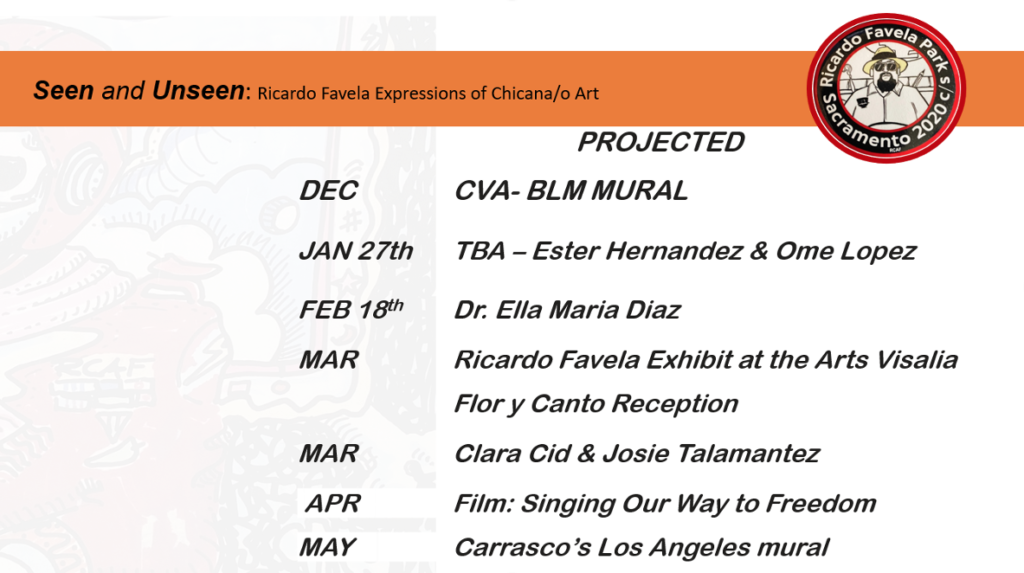History and Mission Statement
The late artist and activist Ricardo Favela was a cofounder of the Royal Chicano Air (RCAF), a Sacramento-based Chicano artist collective that was established in 1969. Mr. Favela grew up in the fields of Dinuba, CA in Tulare County. He attended College of the Sequoias (COS) in Visalia, CA, and in 1965 transferred to California State University Sacramento. Eventually becoming Professor Favela and associated with CSUS’s Barrio Art program for some 36 years.
Our project curator has stated that Ricardo Favela’s “Art For the People” body of work documents the Chicano movement in the central San Joaquin Valley. Ceramics being his primary art of expression. His art “creates images which characterize the inequities faced by Chicano people and to respond to them, often with a humorous bend”. He was a pioneer in the use of calavera images. His calaveras are alive, representative of his understanding of life and death. “He willingly spread his art to those in search of a way to express themselves through art, be it in the community, in classrooms, or on the basketball court- even to those who were incarcerated. ‘Have causa, will travel,” he often joked” (Salas).
This project would include displaying Ricardo Favela’s art in the COS gallery, with a “Flor y Canto” style reception (includes, music, dance, spoken work in addition to visual art). A second reception (if possible) would feature Royal Chicano Air Force, or other collaborative Chicano art pieces. In addition, to engaging COS and surrounding high school students with tours and a speakers’ panel or series of speakers, a series of clay and or tile intergenerational workshops would be offered at the Tulare County Cultural Heritage Foundation Center in sponsorship with Veritas. We have many community partners ready to form a planning committee, local community artists and organizations willing to collaborate.
Excerpt from “In Search of Con Safos”
De seguro a small farm town in California’s San Joaquin Valley is the inspiration for his search. The idea began in Dinuba. That was the place where his fundamental thoughts were formed, where one is valued not by individual merit but by the side of town you live on. Race is also notable yet can be overlooked if you overlook it yourself, as you trade your chile-eating ability for the American dream. Once you pass las pesadillas the dreams are said to be pleasant or at least that’s the promise. Still, for some there are dreams carved out of terrones, the dirt clods left after tractors plow fertile fields. These were the dreams that captivated the imagination of Ricardo Favela. Taking cover under grapevines and playing army by improvising the artillery fire with ganchos, metal clothes hangers made plastic soldiers tremble as planes swooped down upon enemy troops.
Schedule:

